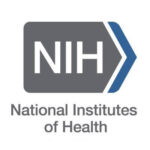*New* Spring Quarter Call for CSDE Seed Grants (due 04/15/2021)
CSDE affiliates are invited to apply for seed funding for grant application support. This call invites affiliates to put forward applications that are meant to lay the groundwork for subsequent extramural grants and research products – such as papers, conferences, book manuscripts, or other scientific outputs. CSDE is especially interested in applications that fit into any of the many research programs of NIH’s Population Dynamics Bureau (PDB). These cover a wide range of areas of population science topics, including any of the following: 1) the role and function of adoption and kinship, 2) bio-psychosocial mechanisms, 3) data sharing, 4) demography of health, 5) family and intergenerational relations, 6) fertility and infertility, 7) life course health, 8) population composition, 9) population economics, 10) population mobility and spatial demography, 11) social and behavioral research on reproductive health. For more information, visit CSDE's seed grants page or contact Steve Goodreau CSDE Development Core Director. The application deadline for Tier 2 and 3 is April 15, 2021. Tier 1 applications are accepted on a rolling basis.(read more)
|
 |
Computational Demography Working Group: Talk by Matt Rafalow from Google
|
On April 19 at 3pm, Dr. Matt Rafalow will be speaking about his new book Digital Divisions (University of Chicago Press). Rafalow is a Research Scientist at Google and his book examines digital inequalities in learning and schools. The zoom link for the talk can be found here. More information about the Computational Demography Working Group talks can be found here. (read more)
|
 |
Join CSDE for Trainee PAA Practice Presentations!
|
Congratulations to CSDE Trainees for being selected to present at PAA 2021! Mark your calendars for April 26, 2021 at 2 PM for CSDE’s PAA Practice Presentation Session. CSDE provides PAA student presenters the opportunity to practice their presentations and receive feedback from our interdisciplinary group of students and faculty. Four graduate students are eager to present their research and discuss their work with you during practice presentations.
Priya Sarma (2-2:15): "Exploring Our Future: Creating Small Area Projections, 2020-2045"
Lee Fiorio (2:15-2:30): Putting Migration Decline in Context: The Geography of U.S. Internal Migration, 1850-2010"
Maria Vignau-Loria (2:30-2:45): "Unequal Risks Versus Changes in Composition: Patterns and Trends of Deportation From the United States to Mexico, 2005-2018"
Crystal Yu (poster) (2:45-2:55): "The Demographic Effects of Eliminating Alzheimer’s Disease"
Q&A: 2:55-3:30
Come attend these practice talks, provide feedback as well as hear about this fascinating research in progress by our trainees. To access the Zoom link, click here. (read more)
|
 |
*New* NIH Common Funds RFA to Address Health Disparities and Advance Health Equity (due 05/28/2021)
|
The NIH has established a new initiative called UNITE to end structural racism and racial inequities throughout the biomedical research enterprise. As part of UNITE, the NIH Common Fund issued two funding opportunities announcements (FOAs) to bolster innovation, solve challenges, and address health disparities and advance health equity: 1) RFA-RM-21-021 Transformative Research to Address Health Disparities and Advance Health Equity (U01 Clinical Trial Allowed) 2) RFA-RM-21-022 Transformative Research to Address Health Disparities and Advance Health Equity at Minority Serving Institutions (U01 Clinical Trial Allowed).
The FOAs will support collaborative investigative teams or individual scientists who propose unusually innovative research projects,which, if successful, would have a major impact in developing, disseminating, or implementing innovative and effective interventions and/or strategies that prevent, reduce, or eliminate health disparities and inequities. Additionally, funding opportunity RFA-RM-21-022 is expected to increase the competitiveness of investigators and expand the research base dedicated to health disparities research at minority serving institutions. Research addressing community-prioritized research questions, cross-cutting issues such as social determinants of health across sectors, multiple levels and systems that contribute to health disparities, and/or priority areas of multiple NIH Institutes and Centers are particularly encouraged.
All applications are due on May 28, 2021 by 5:00 PM local time of applicant organization. If you have questions about the FOAs, please email CFHealthDisparities@nih.gov. NIH staff intend to hold a Pre-Application Webinar for all interested prospective applicants. The webinar date and other details will be posted here. NIH staff will be available to answer questions related to these FOAs. Answers to Frequently Asked Questions are available at this link. (read more)
|
 |
Looking for Data? NCHS Data Linkage May Be Of Interest
In your population health research agenda, you may be looking for linked data files. The National Center for Health Statistics (NCHS) links health related data, from multiple sources, so that scientists and policymakers can answer complex health questions relevant to all Americans. For example, NCHS-linked data resources have helped answer key health policy questions including: How effective are federal policies aimed at lowering lead exposure in children living in public housing? Are there adverse health effects associated with the mandatory folic acid fortification policy for grain products? Do persons with disabilities have adequate access to health insurance? To learn more about these data, see here. (read more)
|

